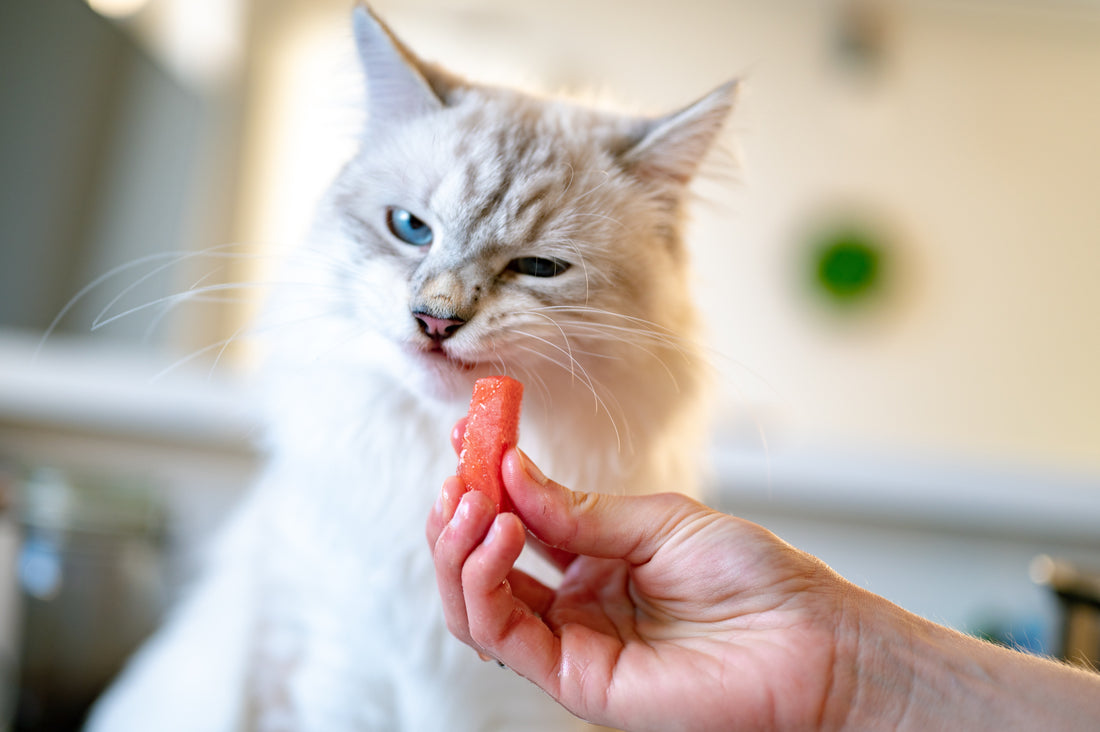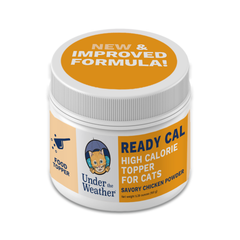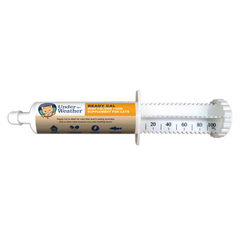There are many reasons why a cat may be uninterested in eating, including illness, stress, dental problems, gastrointestinal issues, pain, food preferences, (AKA finicky) and more! Related: When Your Cats Not Eating
If your cat is not eating for more than a day or two, it’s important to consult your veterinarian to rule out any medical issues. After your cat has been cleared health wise, try implementing some of the ideas below to encourage eating.
1. Experiment with Different Cat Foods
Some cats are perfectly happy with dry food, while others will only eat wet food. Experiment with different types of both, offering various flavors from different brands. Use food toppers to entice your cat. These can be commercially bought toppers, or just foods you have in your house such as tuna, tuna water, chicken broth, sardines, salmon, chicken, or beef, and even just a few cat treats crumbled over the food. For the best results, it’s recommended to use strong smelling foods, typically fish. Chances are, if you find the smell of the food absolutely disgusting, your cat will love it! It’s all about trial and error! And remember to keep notes about the foods your cat seems to prefer, so you can offer them again.

2. Heat Up Their Cat Food
Both smell and taste play a very important role in enticing a cat to eat. When food is warmed, it naturally releases the aroma, while also increasing the palatability of the food by enhancing its flavor. This can be especially helpful for older cats, as their sense of smell decreases with age. Warming their food also makes it softer and easier to eat, especially if your cat has dental issues. And if your cat typically eats dry food only, you can try adding some warm water, broth, or tuna water.
3. Hand Feed Your Cat
If you have an affectionate cat that enjoys your attention and being in your company, using the hand feeding technique can be a great way to encourage eating. It’s a good idea to also try offering high-value foods or treats that you know your cat likes, as this will work to stimulate their appetite.

4. Try Different Feeding Times For Your Cat
A lack of interest in eating can also occur due to something as simple as not having regular daily feeding times. Keep mealtimes consistent, and avoid giving too many treats in between. If your cat is getting too many snacks throughout the day, it only makes sense that they may not be hungry at mealtime.
5. Change Your Cat's Feeding Location
Hand feeding can be very effective for a social cat that enjoys attention and interaction. Alternatively, (for various reason) your cat may feel stress and anxiety at feeding time, and prefer not to have any distractions. In this case, be sure to feed your cat in a quiet location where they will not be interrupted. This is especially true if you have a very active household with children and/or other pets.

6. Interactive Feeders for Cats
For some cats, it may have nothing to do with the actual food you serve them, but may instead be the delivery that’s causing a lack of interest in eating. This can be especially true for those cats that were once outdoors full time, and now live indoors only. Of course, all cats are different, but if your cat shows signs of restlessness with indoor life, they may also find eating out of a bowl to be a bit boring. A great solution is to swap that boring bowl for a fun-filled interactive cat feeder! These feeders are more like puzzles, working to engage your cat’s brain and stimulate their natural hunting instincts. “Hunting” for their food can be a real game changer and you should have no problem finding many options in pet stores or online.
Helpful Hint: You don’t have to buy a commercial feeder; DIY interactive feeders are easy and fun to make! A quick Google search will provide tons of sites, with endless ideas using everyday household items. And if your cat only eats kibble, they may enjoy having to hunt for it around the house, no feeder necessary!
7. Exercise Your Cat Through Play
Having play sessions with your cat before feeding can help stimulate their appetite in several ways. As we know, physical activity burns calories that our bodies will then seek to replenish, and since cats are natural hunters, choosing games that mimic hunting can stimulate their natural predator instinct and encourage eating. In addition, exercise through play works to enhance mood and reduce stress, another factor that can affect appetite.
8. Feed Your Cat a High-Calorie Supplement
Weight loss can quickly lead to malnutrition and further health issues. Adding a high-calorie supplement will help provide essential calories your cat needs daily to gain or maintain a healthy weight. A supplement that adds calories, along with essential vitamins and minerals, will boost your cat’s energy, resulting in an increase in activity to naturally stimulate appetite.

Products related to this article:
Every Sale Supports a Shelter Pet. Learn More.
Created in Vermont. Learn More.
If you suspect your pet is sick, call your vet immediately. For health-related questions, always consult your veterinarian, as they have examined your pet, know the pet's health history, and can make the best recommendations for your pet.














